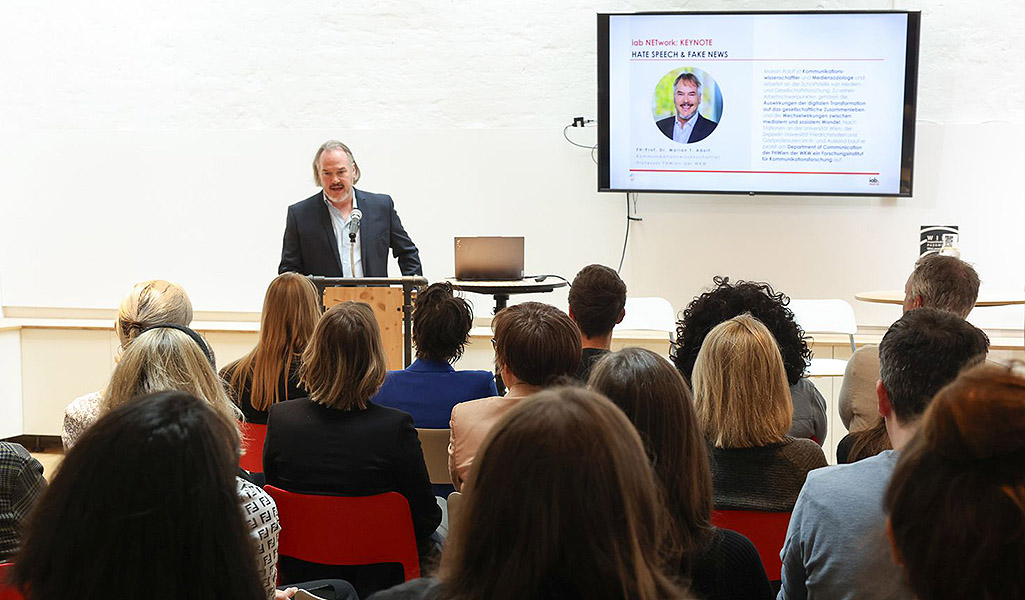Professor and senior researcher Marian Adolf recently gave a well-received keynote speech on the topic of ‘Fake News & Hate Speech’ at the iab Austria NETwork, which took place in Vienna. The focus was on the effects of the disinformation crisis on society and the loss of trust in social institutions and the media.
Disinformation, fake news and hate speech are multifaceted phenomena in which psychological, technological, social, political and economic causes are intertwined. Taken together, however, they have the potential to undermine the foundations of social communication. The effects are multifaceted and extend far beyond the media.
Controversial topics on ‘social’ media
A noticeable fact is that fake news mostly concerns controversial topics such as migration, health, war, politics or climate change. The most common sources of disinformation are social media, with Twitter/X and TikTok standing out in particular. This is alarming because young people today obtain most of their information from social media, where hate speech in the form of hostile or defamatory content is also widespread.
The discourse crisis as a threat to society
Fake news and hate speech ultimately lead to the same result, which is why Adolf summarises them under the generic term ‘discourse crisis’: Both destroy the foundations of social communication. However, because what unites us in a common social reality is a communicative process, the discourse crisis affects the cohesion and functioning of society as a whole.
The discourse crisis is therefore not just a phenomenon affecting the media, but a crisis of social trust. It lies at the heart of the problems that society is currently facing. Disinformation, conspiracy narratives, hate speech and the like are depriving us of a shared social reality and thus the ability to respond adequately to the diverse challenges of our time. Those who destroy trust, destroy knowledge; those who undermine knowledge, undermine trust.
There are no simple solutions
To meet this challenge, it is important to understand that there is no one single solution to the discourse crisis. More media literacy, more fact checks, and more education will not be enough to tackle the problem. Instead, we need a mix of legal, social, educational and policy measures. It doesn’t help that media politics in the broader sense isn’t nearly of the importance it should be, despite our global and digital media society, says Adolf. This applies both to the promotion of high-quality journalism as a source of robust information and to the regulation of large, commercial social networks, which have been able to run the show for far too long. Only by joining forces can politics, educational institutions and civil society counteract the discourse crisis.
The media magazine medianet dedicated a detailed article to the iab Austria NETwork event: iab austria discusses socio-political problems in the super election year (in German)
On June 12, 2024, Marian Adolf will be guest at the PRofi-Treff of the Public Relations Association Austria (PRVA) on the topic “Fake News and Disinformation: Challenges, Dangers, Counter-Strategies” >> To the event and registration (in German)
